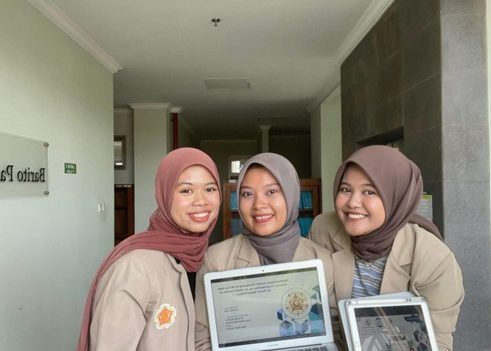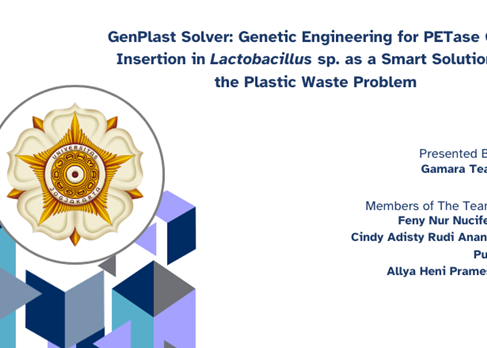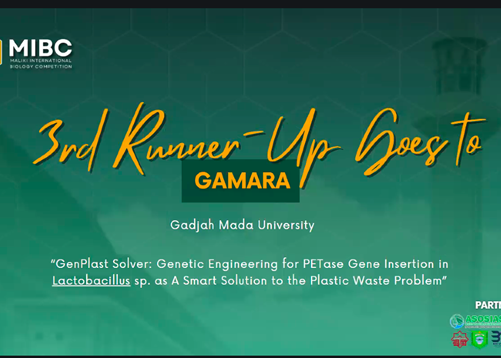The Faculty of Biology of Gadjah Mada University student team consisting of Feny Nur Nucfera (Biology 2021), Allya Heni Pramesti (Biology 2021), and Cindy Adisty Rudi Ananda Putri (Biology 2021) achieved 3rd Runner Up in the essay competition at the International Biology Competition (MIBC) 2024. International Biology Competition (MIBC) 2024 is a global scientific competition organized by the biology master program of UIN Maulana Malik Ibrahim Malang from October 8 to December 1, 2024. This global scientific competition was attended by more than 100 teams of both undergraduate (S1) and master (S2) students nationally and internationally. The competition with the theme “Innovative Scientific Solutions for Sustainable Development” aims to foster the interest of the younger generation in the field of research and scientific writing. The competition encourages students to develop skills in research, analysis, and scientific writing by utilizing technological advances to support sustainable development in accordance with the goals of Indonesia Emas 2045.
With a background in biology, the UGM Biology Student Team used a Biotechnology approach in their scientific paper entitled “GenPlast Solver: Genetic Engineering for PETase Gene Insertion in Lactobacillus sp. as a Smart Solution to the Plastic Waste Problem”. The background of this work is the increasing global plastic waste problem with global plastic production reaching 400 million tons per year and Indonesia being the second largest contributor to plastic waste in the world. Only 9% of plastic waste is successfully recycled. Current plastic waste management methods such as incineration and recycling have constraints, namely technology and public awareness. Plastic waste has a negative impact on human health and ecosystems. Therefore, it is necessary to develop environmentally friendly biotechnology-based innovations to address the global plastic waste problem.
One of the innovations raised by the team is the GenPlast Solver culture starter based on genetic engineering to tackle plastic waste efficiently. This idea explores the potential of genetic engineering techniques by inserting the PETase gene from Ideonella sakainensis into gram-positive bacteria Lactobacillus sp. as a solution to degrade plastic waste. The PETase enzyme derived from Ideonella sakaiensis showed much higher activity in degrading PET (polyethylene terephthalate) plastic compared to other enzymes. This makes it a promising candidate for bioremediation efforts. However, the growth of Ideonella sakaiensis has a negative impact on the environment. Lactobacillus compared to Ideonella sakainensis has the advantages of resistance to high salinity and adaptability to environmental pH, making it more suitable for direct application in ecosystems. The engineering process includes isolation of PETase gene, cloning into expression vector, transformation into Lactobacillus sp. and optimization of gene expression. The final product is a genetically modified Lactobacillus sp. starter culture that can be applied in the treatment of plastic waste in industries and landfills. This innovation offers a sustainable green technology approach (SDGs 3, 4 & 12), supports the reduction of greenhouse gas emissions (SDGs 13), and creates new economic opportunities through the production of GenPlast Solver-based starter cultures (SDGs 8). [Author: Feny Nur Nucfera]




